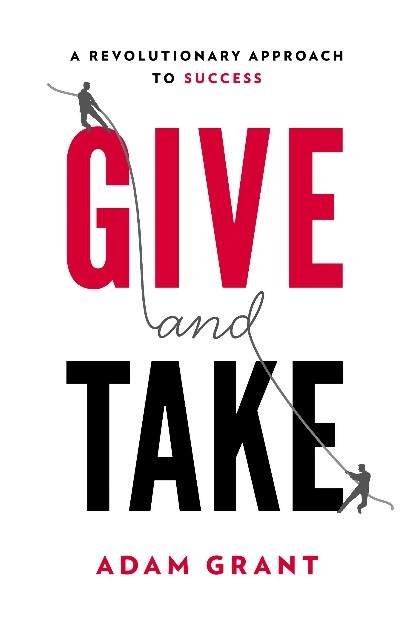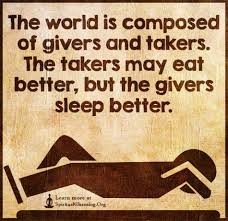 BOOK REVIEW
BOOK REVIEW
Hardcover, 320 pages, Published April 9th 2013 by Viking (first published January 1st 2013)
The book Give and Take is authored by Adam Grant who is considered Wharton’s most appreciated professor. Grant talks about why some people rise to the top of the success ladder while others remain at the bottom. The author has illustrated some short stories based on true life characters and mini-case studies to underline the fact that givers always score above takers. His book opens up an approach to work, connect and increase productivity in the work place. Even in business, the entrepreneurs who give are appreciated by employees. The author cites Phil Jackson’s the coach of Chicago Bulls example as a giver; Phil inherited in 1989 a struggling team with one of the best players in the world, that’s Michael Jordan. Jackson instead of focusing only on the basketball star, chose to develop the team as a whole — a coaching philosophy that helped the Bulls win six NBA (National Basketball Association) titles. The author calls Michael Jordan as a “self-absorbed and egotistical” taker. Grant has not elaborated Phil’s philosophy of giving.
The book talks paying it forward: when leaders give they create value. An organization requires more givers than takers to progress. The book emphasizes that leaders must think about creating team of people for a robust organization. They should not only think about how they would be compensated. A parallel old school classic success principle is to do more than you’re paid for. In commercial vocabulary it is to give more than you get. The author says that in due course of time organizations must invest in trust bank, which means create a pool of trustworthy employees. The author also talks about 101 ideas to invest in the trust bank.
The book sharply distinguishes the two styles of giving and taking, the approach of givers and takers and their attitudes and actions towards other people. He says that if you’re a taker, you help others strategically, when the benefits to you compensate the personal costs. If you are a giver, you might use a different cost-benefit analysis: you help whenever the benefits to others exceed the personal costs.
Adam Grant advances the challenging proposition that givers enjoy a powerful comparative advantage over takers. His message is that merely taking is not a good strategy. In particular, Give and Take is an intense indictment of the takers’ tactics of grasping, maneuvering, and manipulating corporate executives who literally take from their colleagues and customers; and who by their pursuit of unethical misconduct literally topple the aims and objectives with their slimy tactics. He highlights the supposed poster boy of this unsustainable style is Ken Lay, former Enron CEO, who exemplified that “takers may rise by kissing up, but they often fall by kicking down.”
Importantly Adam Grant outs the ill-conceived and ultimately destructive policies of such heavy-handed, hard-hearted executives as Jack Welch, who insisted that employees rated in the bottom 10 percent regularly be terminated. Such fear-inducing policies both suppress giving, and also obviously disrespect the proven managerial workplace psychology principle that workers’ performance is strongly influenced by their superiors.
The author has acknowledged nearly 300 named people for their feedback, wisdom, knowledge and experience, wealth of innovative ideas, help and encouragement.
Conclusions drawn from the book:
- Takers operate with a distinctive style of operating, they take more than they give.
- Takers manipulate a lot, they take credit for work not done by them.
- Givers focus on what people need from them.
- A giver is usually generous and he strives by sharing his ideas, skills and contacts.
- There is a category of “matchers” at work place who try to balance giving and taking.
- Givers are not necessarily at top of the ladder, sometimes you see them at bottom.
- If you are taking something from a taker, it is risky proposition, they tend to squeeze a lot from you in end.
- Takers are I, me, myself and givers are we, us, and ourselves.
- When favors come with strings attached, it is nothing, but a transaction.
- Takers suck the energy of the organizations and givers enhance energy of the organization.















































